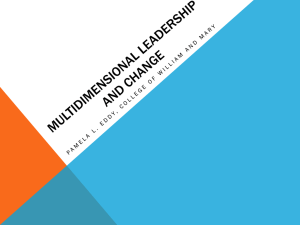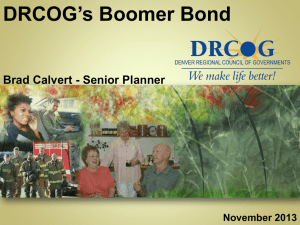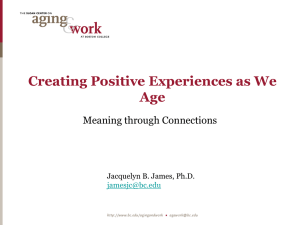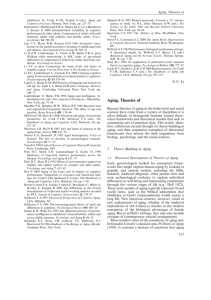Chapter 3: Theories of Aging
advertisement
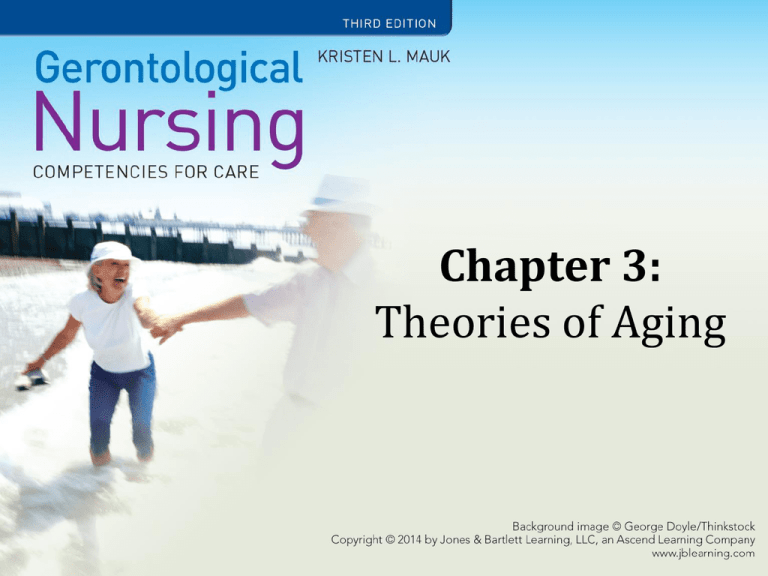
Chapter 3: Theories of Aging Learning Objectives • Identify the major theories of aging. • Compare the similarities and differences between biological and psychosocial theories. • Describe the process of aging using a biological and a psychosocial perspective. Learning Objectives (cont’d) • Analyze the rationale for using multiple theories of aging to describe the complex phenomenon of aging. • Describe a general theoretical framework, taken from all of the aging theories, which will assist nurses in making clinical decisions in gerontology. Psychosocial Theories of Aging • Changing roles, relationships, status and generational cohort impact the older adult’s ability to adapt. (Table 301, p. 64) – – – – – – – Activity Theory Disengagement Theory Subculture Continuity Theory Age Stratification Theory Person-Environment-Fit Theory Gerotranscendence Psychological Theories • Explain aging in terms of mental processes, emotions, attitudes, motivation, and personality development characterized by life stage transitions (P.65) – – – – – Human Needs Theory: five basic needs Individualism Stages of Personality Theory Life-Course/Life Span Theory Selective Optimization Theory Psychological Theories Erikson’s stages of personality development for a person that is 76 years old would be: a) autonomy versus shame b) integrity versus despair c) generativity versus isolation d) trust versus mistrust Biological Theories of Aging Stochastic Theories • Environment and the body’s constant need to manufacture energy and fuel metabolic activities cause toxic by-products to accumulate. • Based on random events that cause cellular damage, which accumulates as organism ages. – Free Radical Theory: end product of metabolism – Orgel/Error Theory – Wear and Tear Theory – Connective Tissue Theory Biological Theories of Aging Nonstochastic Theories • Based on genetically programmed events caused by cellular damage that accelerates aging of the organism. – – – – Programmed Theory Gene/Biological Clock Theory Neuroendocrine Theory Immunological Theory Nursing Theories of Aging • Functional Consequences Theory – Environmental and biopsychosocial consequences impact functioning. • Theory of Thriving – Failure to thrive caused by discord between the individual and environment or relationships. Conclusion • For older adults with chronic illnesses, stochastic theories of aging help nurses to better manage physical illness and conditions • Psychosocial aging theories help nurses assist older adults and their families recognize that their life has been one of integrity and meaning, and facilitate peaceful death with dignity. • Aging continues to be explained from multiple theoretical perspectives, which collectively reveal that aging is a complex phenomenon still much in need of research. Question When a person who says “the body just falls apart when it gets old” would be said to subscribe to which theory of aging? a)Biologic theory b)Disengagement theory c)Continuity theory d)Developmental theory





